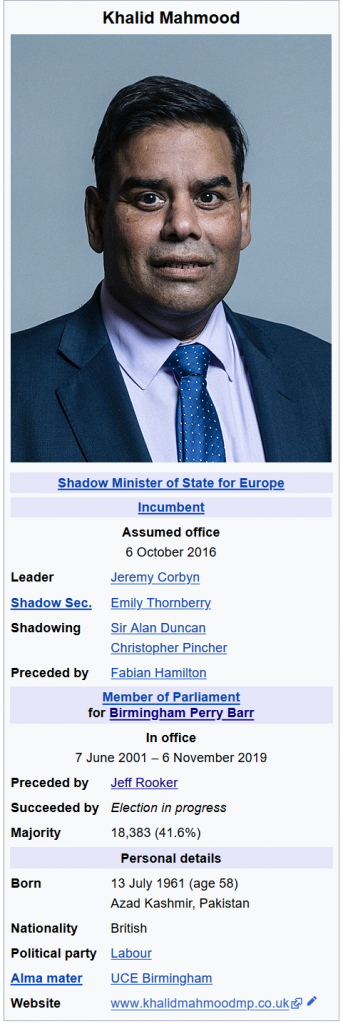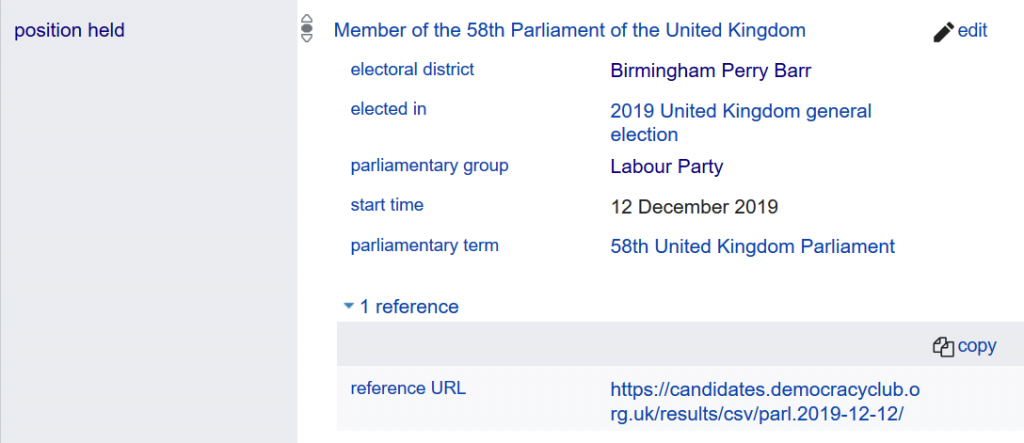As soon as the first election results were announced on 12 December, Wikipedians – the volunteers who write and edit Wikipedia – sprang into action, updating Wikipedia’s articles about the election itself, about every individual constituency, and about every single MP.

Where necessary, they also began to create new, non-partisan articles about the people who were freshly elected. They applied painstaking care to ensure that every statement made was cited to a reliable source. Those volunteers are motivated by the mission of building, in Wikipedia co-founder Jimmy Wales’ words, “a world in which every single person on the planet is given free access to the sum of all human knowledge”.
Wikipedia has “notability guidelines”, to determine what and who gets written about. Simply being a candidate in an election does not meet the threshold set in those guidelines, but being elected as a member of a national parliament certainly does, without exception. So Wikipedia has – or very soon once again will have – a biography of every sitting UK MP.
The volunteers also added data, including for example MPs’ websites, Twitter names and Facebook profiles, to Wikipedia’s younger sister project, Wikidata. That’s a database that provides online, queryable data (linked open data, in technical jargon) that is used to populate Wikipedia articles. Data from Wikidata can also be used freely by other people’s websites and apps. Among those who use this data are Google, for the summary boxes and images that appear at the top of their search results.
Another of Wikipedia’s sister projects, Wikimedia Commons, hosts images for use on Wikipedia, and freely available for others to reuse. To allow such use, those images must be made available under an “open licence”, typically the Creative Commons “CC by sa” licence. Most sitting MPs had their pictures taken by Chris McAndrew in 2017 and made available under an open licence as part of a parliamentary initiative. But that’s not the case for new MPs, and Wikipedia currently lacks pictures of many of them.
This Wikidata query page shows some of what Wikidata knows about all the MPs in the new parliament (you can follow the individual links to see more), and which have images. Note the gaps. If you work for an MP, you can fill those gaps!

Anyone can update Wikipedia and Wikidata, provided that care is taken to remain neutral in tone, and that conflicts of interest (including but not only editing for pay) are openly declared. I’ve written before about how MPs and their staff can work with Wikipedia and its sister projects, to ensure that the articles about MPs are complete and up-to-date, and that they each have a good, recent picture of the MP.
Wikipedia volunteers are still busy ensuring that the recent election results are accurately reflected. Those hard-working volunteers (of which I’m one) would be very grateful for your assistance in ensuring that “the free encyclopedia that anyone can edit” is complete and accurate.
Andy Mabbett
Andy Mabbett, FRSA, (ORCID: 0000-0001-5882-6823) is a consultant who specialises in advising organisations about Wikipedia and its sister projects, and training people to edit Wikipedia and Wikidata. He has worked as a “Wikimedian in Residence” for a number of museums, art galleries, learned societies and universities.
